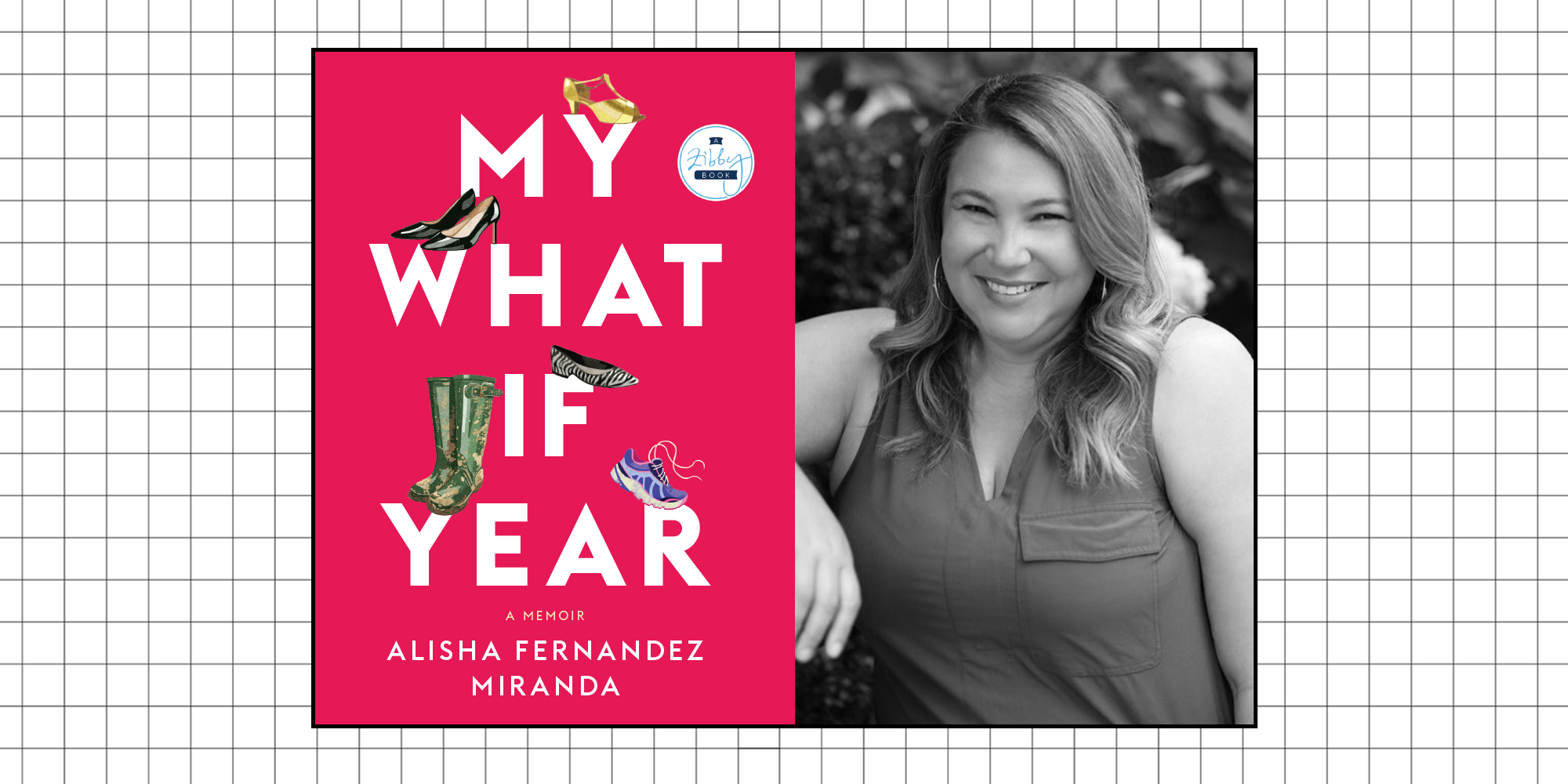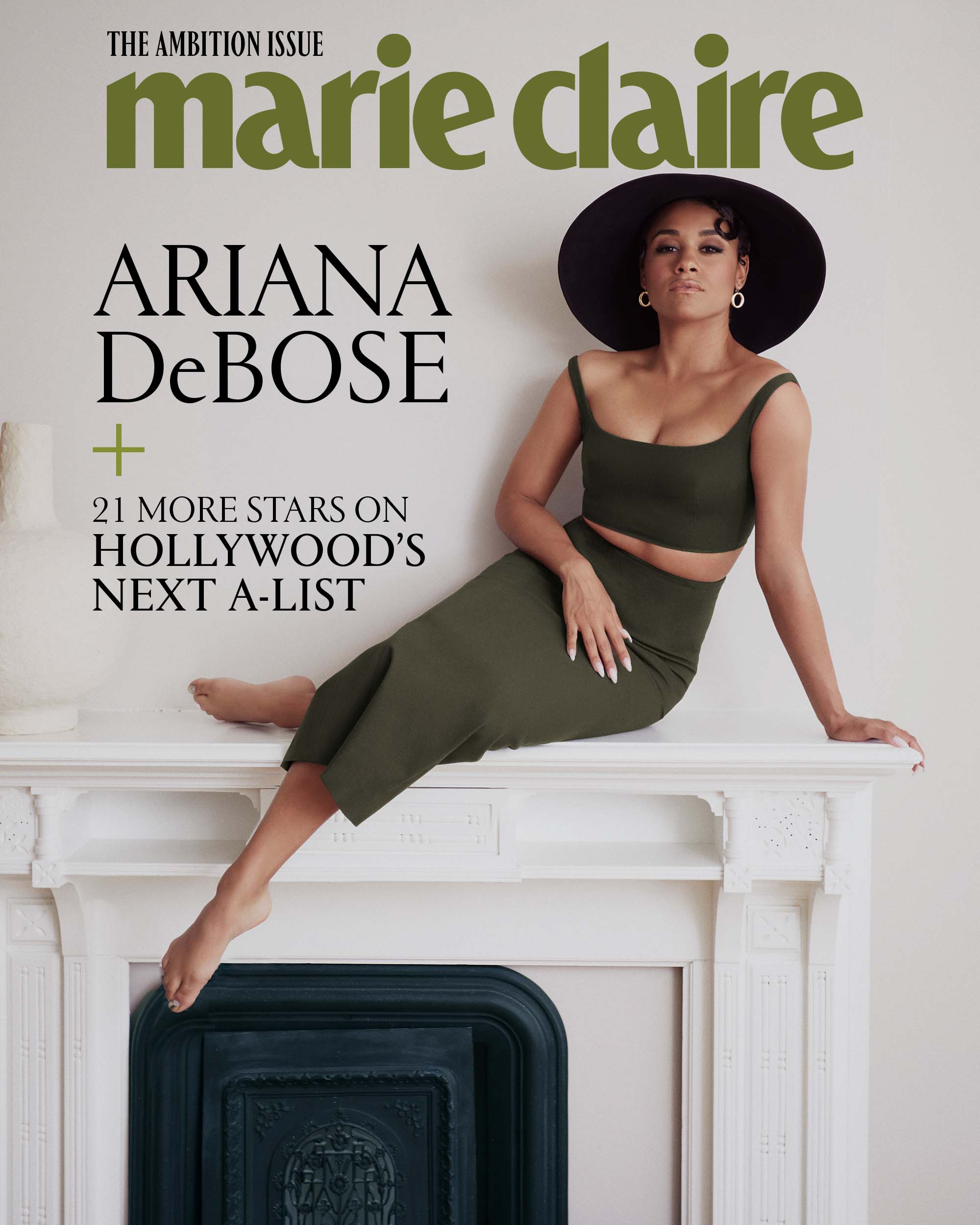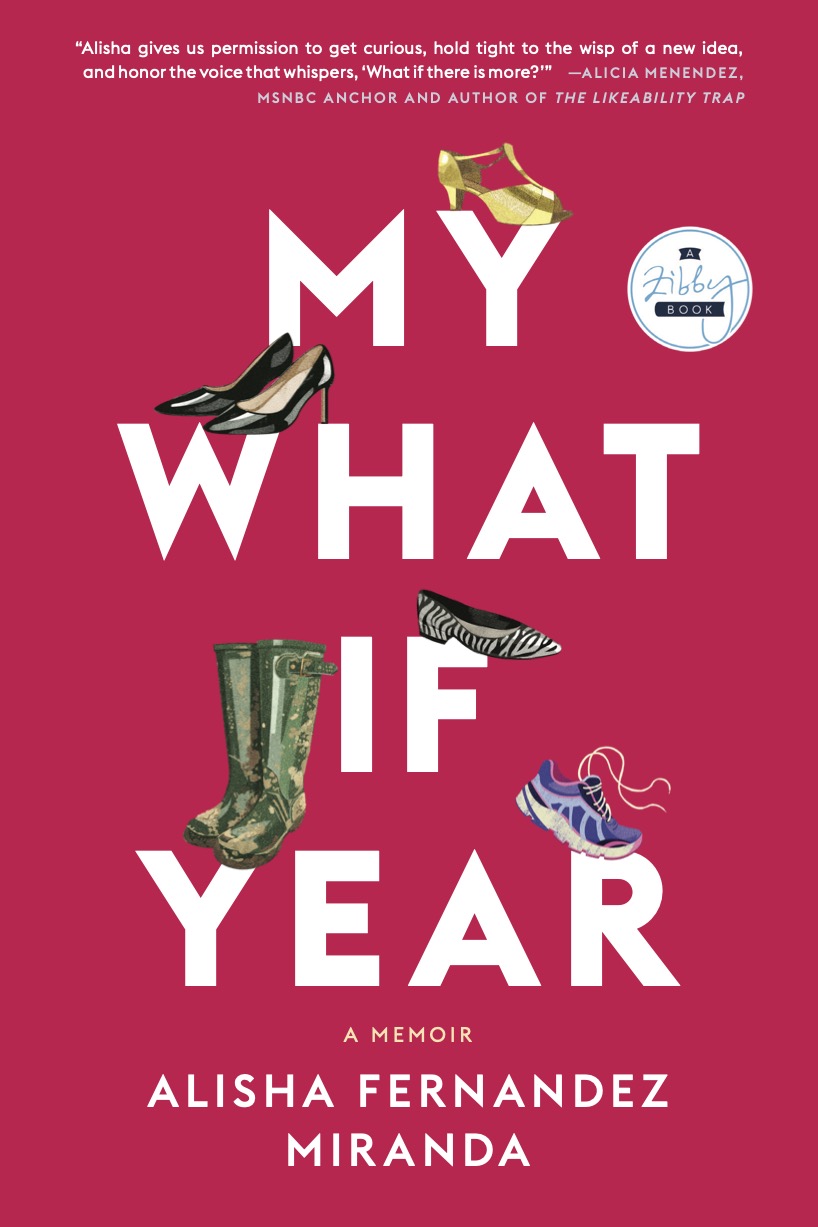'My What If Year': Quitting Your Job at 40 to Become an Intern
In an excerpt from her memoir, Alisha Fernandez Miranda takes a one-year break from her role as CEO at a consulting firm to try out the jobs she's always dreamed of doing.

I had always been, if nothing else, a girl who loves a plan. Thinking about all the steps at once was overwhelming and terrifying, but just taking the next step was simple enough. I immediately pulled up my work calendar. I scrolled ahead to the first empty weeks I could find—still a good six months away—and I blocked off an entire month with the suitably vague but firm “Alisha Out of the Office.” February 2020 felt like a lifetime away, but at least it was a start.
Somehow, just knowing that “Out of Office” was in my calendar was the thing I needed to take the next step: actually finding an internship. Broadway was the dream—and I had a solid connection—but the more I thought seriously about some of the other jobs I’d considered before, like in art and marine biology, the wider my search became. I tackled the task with my signature gusto and borderline unhealthy Excel obsession, creating an “internship relationship management” spreadsheet. One row at a time, I populated the list with my hopes and dreams alongside details of people I pulled off of LinkedIn. I included former co-workers, passing acquaintances from college, friends’ cousins (and their dads), and exes and their new partners. I was not picky. Anyone who could help me get my foot in the door made it onto the list.

Emotionally and practically it was one step forward and forty steps back. I’d get nervous and say I was too busy to keep working on this dumb idea anyway and push it to the side for a week before coming back to it in the middle of the night as if it were the only thing that was going to save me. I would delete the “Alisha Out of Office” in my calendar, only to put it back in a few minutes later. But then I’d do something real, like draft an email to send to all of these random contacts and their relatives, something that would convince them that my email account had not been hacked but that I really, really wanted to be their intern. Then I would redraft it sixteen times, eventually, coming up with something that didn’t make me want to vomit:
Thank you in advance for taking the time to read this conventional request (an unpaid internship) from an unconventional candidate. I’m undertaking a personal project, exploring the career paths I almost chased—but, due to circumstance, chance, and choice, did not—by taking on a series of internships and documenting them. Fifteen years into my professional life, my aim is to gain a deeper understanding of what the X industry is truly like, as a way to better inform the next 15 years. As such, I’m hoping you will consider allowing me to undertake a four-week, unpaid internship at Y.
The polished draft felt real and legit, so even though I still questioned my own sanity regularly, I willed myself to continue the search, executing on all of my professional action verbs: Networking! Emailing! Cold calling! Social media stalking!
The other element of this plan that kept stopping me in my tracks was figuring out how I was going to create not just the time but the space—physically, mentally, and emotionally—to explore this new path. Taking on an internship, even for a few weeks, was going to require me to extricate myself from some of my existing responsibilities, which, in recent years, had ballooned to encompass maybe three people’s full-time jobs, as somewhere along the line I had come to equate being busy with being happy. In addition to running my own company, I had built and launched a sustainable fashion app a few years before that I was trying to expand, plus I volunteered on the board of three nonprofit organizations and the school parent council. And then of course there was the mental load of managing the family: grocery shopping and planning meals, liaising with our nanny and other babysitters to make sure we had childcare always in place; acting as a travel agent for family vacations; booking appointments for the vet, dentist, doctor, or physiotherapist; scheduling playdates; baking cakes for the bake sales; and more or less saying yes to anything anyone asked me to do. All because I could not say no.
In my head, I had a vision of myself as a straight-talking, straight-shooting badass: Sandy at the end of Grease. But actually, all Sandy was, underneath the perm and the black leggings and the cigarette, was her same old self with a makeover: a cheerleading, ponytail-swishing, people pleaser. And so was I.
Get exclusive access to fashion and beauty trends, hot-off-the-press celebrity news, and more.
No one had ever explicitly said to me, “It’s your job to never, ever let anyone down,” but I felt it innately anyway. Maybe it was being the oldest child, or being a girl, or just the sheer fact that I was competent and good at stuff from an early age so I was praised for that, and that praise sure felt good. But whatever the reason, I always felt compelled to make everyone happy.
Eighteen years ago, when I got engaged, a former boss gave a toast in my honor. He raised his glass and told the whole company that I was a model employee—and that what made me this way, he was certain, was that I never, ever wanted to disappoint my parents. It was entirely true. I have never liked to disappoint people, definitely not my parents, Alex and Mindy, but also not my teachers or bosses, and don’t even get me started on my husband, my kids, my friends. I was an aggressive people pleaser. Look at me, I’m Sandra Dee.
Making space for the internships meant that I would have to disappoint some people, which made me even more nauseated than contemplating drafting a résumé with photos on it. But I knew I had to channel my inner Rizzo and start stepping back from some of my many obligations. It was far from easy, but I had become so fixated on the internships, the plan, the resolution to all my inner turmoil and tears, that I was at a breaking point. Disappointing people was bad, but disappointing myself seemed, all of a sudden, to be truly unbearable.
I would love to tell you that I boldly marched into each and every office, slammed the notice of my resignation down on the table, and walked out again before they had time to try and change my mind. I didn’t. I tried. And I failed. When I told the headmistress of my kids’ school I was going to step aside from the parent council, she asked me to stay. “Just one more school year,” she pleaded. I caved.
But a few weeks later, I delicately began untangling myself by noting that it was temporary. “I’m taking a series of mini-sabbaticals,” I said cheerfully. “I’ll definitely be back.”
Or at least that is what I kept telling myself and every- one else. “Midlife crisis,” I’d say, winking. “It’s my Eat Pray Love. Carlos just better hope I don’t leave him for a surfer in Bali.” I joked and made light of the decision, and perhaps I really believed that at the time. The premise of the internships seemed exciting enough to shake me out of whatever was bothering me but not too drastic. I would just take a little break from all my worries and obligations and, most important, my job. I would sow my wild professional oats and come back, refreshed and ready to return to the life I had worked so hard to build.
I had to believe that, because the alternative was frightening. Sure, it was fun to fantasize about having a completely different career, a life that was unrecognizable from the one I had at the moment. But in the harsh light of day, I didn’t see any permanent off-ramps from the path I had set on so many years before. I craved change, the way I craved Pop-Tarts and won ton soup when I was pregnant (viscerally and all the time); I desired the freedom of newness; I wanted to feel that delightful terror of the unknown. But it seemed absurd. So, what, I would just throw away decades of accomplishments and achievements that brought me to the C-suite? I’d risk my comfortable financial situation and steady schedule that suited my maternal obligations?
Nope, that was something that other people did. Less responsible people, perhaps, or those with less to lose. I couldn’t fathom doing something so irrational. The internships—mini-sabbaticals, tiny breaks, whatever I wanted to call this—would be enough. I just needed a vacation from real life; then I’d feel recharged and everything would go back to normal.
So I continued whittling away at my list of to-dos and steps back and steps down. Eventually, I silenced the voice inside of me screaming “YES! OKAY! I’LL DO IT! JUST PLEASE LIKE ME!” for long enough to create a relatively clear calendar in front of me, for the first time in a long time. Now all I had to do was find an internship to fill it with. The hard part was over, and the offers started pouring in.
Just kidding. Actually, nothing happened. Most of my emails weren’t even acknowledged, and those who did respond rejected my offer outright. It was surprising how difficult it was to convince people to let me work for them for free, with no strings attached.
I kept on pounding the digital and physical pavement, sending hundreds of emails begging for an informational coffee to explain my pitch in person and scrolling through social media for tenuous connections to anyone remotely connected in any way to my industries of choice. Besides Broadway, I kept coming up with more fields I thought I should explore. Art was a big one—it had always been an interest of mine, and I fantasized about working on the curatorial team at a big museum. In high school I thought I wanted to be a marine zoologist, feeding seals and teaching them to clap. I wondered about fashion, especially sustainable fashion, and working for a designer. The possibilities were endless.
I had a couple of interviews in cool industries in which I would have loved to intern (and even some in which I did not, but I wasn’t going to be picky) set up for me by friends, or friends of friends or very distant acquaintances, but most of them just wanted free advice about philanthropy—the thing I had been doing for fifteen years. It was discouraging.
Fortunately, I was not a person who was easily discouraged. I got into Harvard but had applied to a bunch of other schools in case I wasn’t accepted. I made sure I never had less than two dozen rolls of toilet paper in my house so I would never be left high and (not) dry. I knew that everything was a numbers game. Once I got one internship, the next would follow. All I had to do was keep calm and carry on, shoot off another five emails, friend another ten people on LinkedIn, and some- thing would happen. I’d be on Broadway before you could say 525,600 minutes, and then who knows what would come next.
From My What If Year by Alisha Fernandez Miranda, published by Zibby Books. Copyright © 2023 by Alisha Fernandez Miranda.
